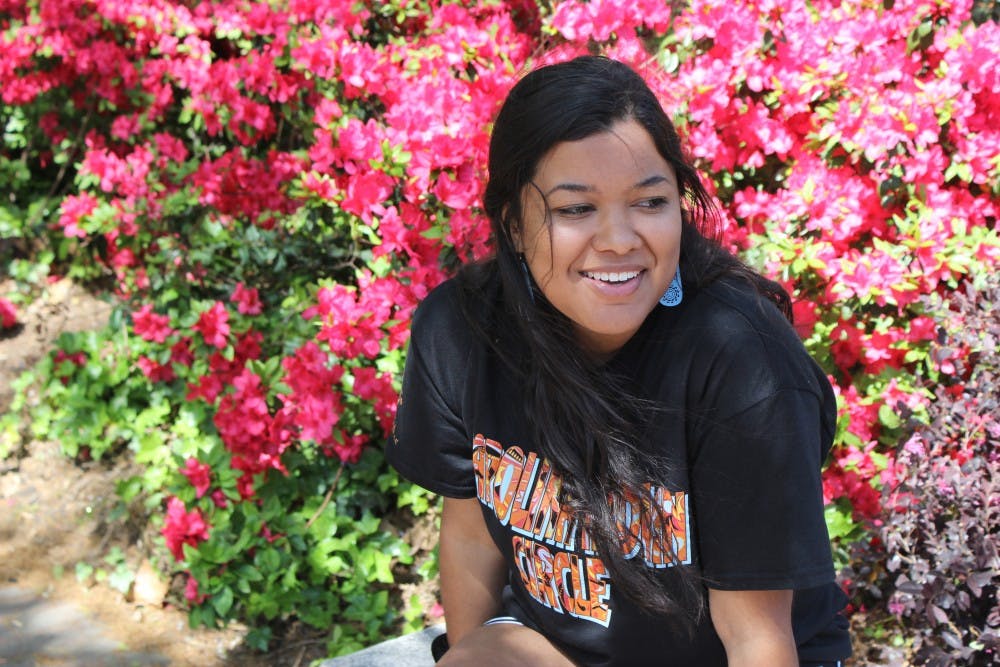Sometimes when Cheyenne McNeill meets new people, they don’t believe her heritage.
“I’ve really heard people say, ‘I didn’t know that American Indian people still existed,’ or ‘You’re the first American Indian person I’ve ever met.’”
McNeill, a senior media and journalism major who is a member of the Coharie Tribe, is the president of Carolina Indian Circle, a student organization that works to increase faculty Native representation and raise awareness about American Indian issues.
“We know that a lot of people don’t learn about American Indian history growing up,” she said. “What you learn is probably untrue, or very biased or just scratching the surface of who we are and were as a people, and because of what you learn, people tend to not know that we still exist.”
The presence of Native students on UNC's campus is one of the smallest. In fall 2017, people who identified as American Indian or Alaskan Native made up 0.4 percent of total enrollment at UNC. Only the Native Hawaiian or other Pacific Islander category is lower, at 0.1 percent.
Events like the Annual Carolina Indian Circle Powwow — the largest collegiate powwow on the East Coast — serve as “coming home” events for Native students and staff, and help increase the visibility of the Native population on campus, McNeill said.
Native peoples are also represented through course offerings. Students can major or minor in the American Indian and Indigenous Studies concentration through the American Studies department.
“There’s a lot of diversity in native America and the indigenous world, and there are a lot of ways to study indigenous peoples,” said Keith Richotte, coordinator for the American Indian and Indigenous Studies concentration. He continued, “You’re not just studying a small group of indigenous peoples, you’re really studying a different way of how to think about and see the world in which we all live."
But for Native students like McNeill, confronting misconceptions or biases about American Indian cultures is a fact of life. McNeill said she and other members of CIC try to turn potentially awkward or insensitive moments into learning opportunities.



